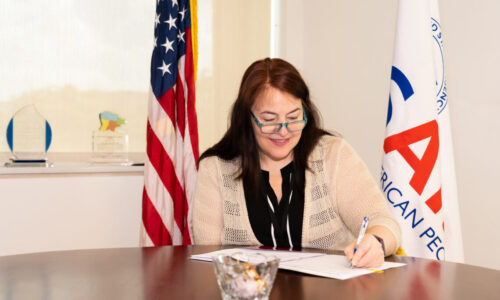The United States Embassy Signs Agreement with the Dominican General Directorate of Special Programs for the Presidency to Close Open Landfills

Cross-posted from the U.S. Embassy in the Dominican Republic website.
The United States Embassy in Santo Domingo, through its Agency for International Development (USAID), signed a memorandum of understanding with the Dominican General Directorate of Special Programs of the Presidency (PROPEEP) to support the remediation and closure of open landfills and develop new state-of-the-art regional infrastructure as part of a Solid Waste Master Plan. This memorandum is signed under the framework of the Clean Cities, Blue Ocean (CCBO) program that is supporting the Dominican Government to advance in the management of solid waste and includes the closure of open landfills, the development of a regional sanitary landfill, and solid waste management programs.
“USAID is pleased to support the Dominican Republic in joining a true public-private sector collaboration to help the nation achieve its commendable commitments toward excellence in waste management,” said Rebecca Latorraca, Director of USAID at the United States Embassy in Santo Domingo. “These actions will not only prevent plastics from entering local waters, but also offers the opportunity to strengthen local governance, improve the health and safety of its citizens, build national infrastructure that is aligned with current and future needs. of the country and protect some of the country’s main economic drivers.”
The initial geographic focus area of the program will be the province of Samaná, with the objective of later replicating this transformation at the national level. This program is based on the February Presidential Decree that ordered the closure of eight of the most polluting open landfills in the country, citing impacts on public health, toxic fumes and fires, and significant environmental degradation.
USAID’s Clean Cities, Blue Ocean program is supporting the establishment of the new regional waste model with the Ministry of the Environment, members of the Samaná Tourism Association, the Municipal League, and local governments. The result of this collaboration is expected to mitigate the immediate impacts of solid waste in Samaná Province. These actions can be replicated across the country to reduce ocean plastic pollution, reduce greenhouse gas emissions, and build more resilient communities and economies, including tourism.
With more than 350 open landfills in the Dominican Republic, Samaná Province is home to several landfills that threaten marine biodiversity, communities, and its burgeoning tourism sector. Solid waste, such as plastics and other pollutants, enters Samaná Bay and the Atlantic Ocean from multiple point sources within and outside the area. This area is not only home to one of the most important breeding sites in the region for humpback whales, but it is also a key area that provides economic stability and food security.
ABOUT USAID’S CLEAN CITIES, BLUE OCEAN PROGRAM
The USAID Clean Cities, Blue Ocean program was launched in August 2019 as the Agency’s flagship program to respond to the global crisis of ocean plastic pollution. The five-year, US $48 million global program works in seven priority countries to target ocean plastic pollution directly at its source. In the Dominican Republic, the program aims to support the national government in advancing solid waste management and is engaging in Samaná Province to implement and test scalable waste and recycling solutions. For more information, please visit www.urban-links.org/ccbo.

